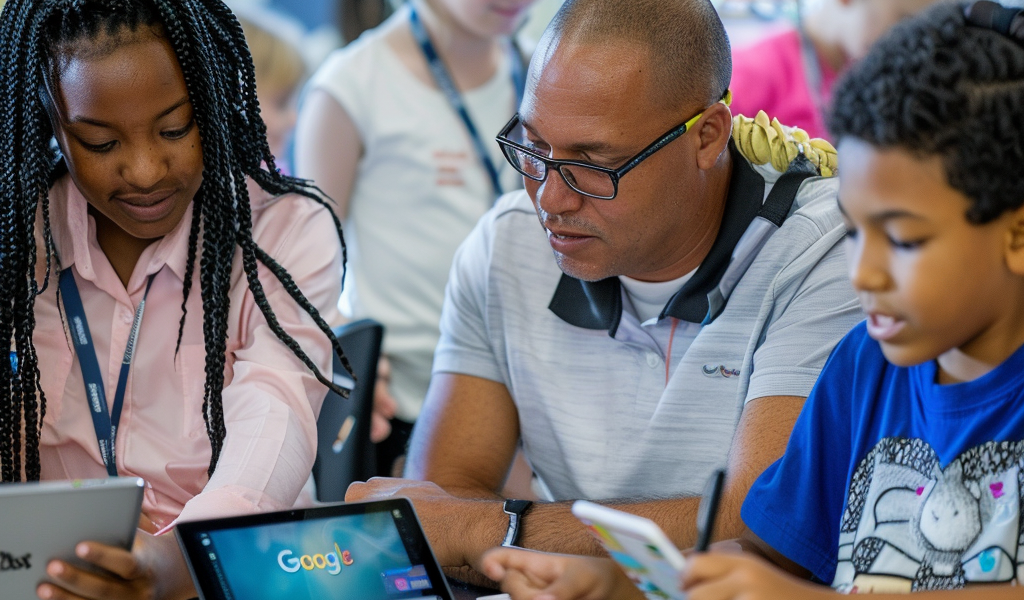Google recently unveiled exciting new features for students at the ISTE 2024 education conference. Among the announcements, Google introduced Gemini, a platform available to teen students in over 100 countries who use Workspace for Education accounts. Gemini, already live for personal users, offers enhanced data protection for education users at no additional cost, with a gradual rollout planned in the coming months.
Google Classroom is currently testing Gemini to assist educators in lesson planning and content organization. Additionally, Read Along is being integrated to support younger students in practicing reading skills with real-time AI assistance. Educators can assign reading activities tailored to individual students based on measures like Lexile®, grade level, or phonics skills, with a wide selection of books to choose from various sources including Heggerty and ReadWorks.
Teachers will soon have the ability to create personalized stories to cater to student needs. The Read Along feature in Google Classroom will initially be available in English globally, with additional language support starting with Spanish. Google Vids without generative AI will be accessible to students and teachers using Google Workspace for Education Plus.
Moreover, Google is expanding the availability of Meet and Assignments to third-party learning management systems such as Canvas and PowerSchool Schoology Learning. In desktop Chrome, the Reading Mode side panel will introduce a Read Aloud feature, following the Android app’s addition of a similar text-to-speech capability. Users will have access to multiple voices, adjustable playback speeds, and the option to disable line-by-line highlights, with playback controls for sentence navigation.
On ChromeOS, the Files app is incorporating augmented image labels to aid screen readers in interpreting unlabeled images on the Chrome browser. Similar to the Google Tasks integration, Google Classroom assignments will be displayed in the shelf calendar for easy access. This feature will be gradually rolled out in the upcoming weeks.
During the Chromebook Plus event in May, Google teased upcoming capabilities, including the ability to control ChromeOS using facial expressions and head movements, set to be implemented later this year. These advancements underscore Google’s commitment to enhancing the educational experience for students and educators worldwide.





